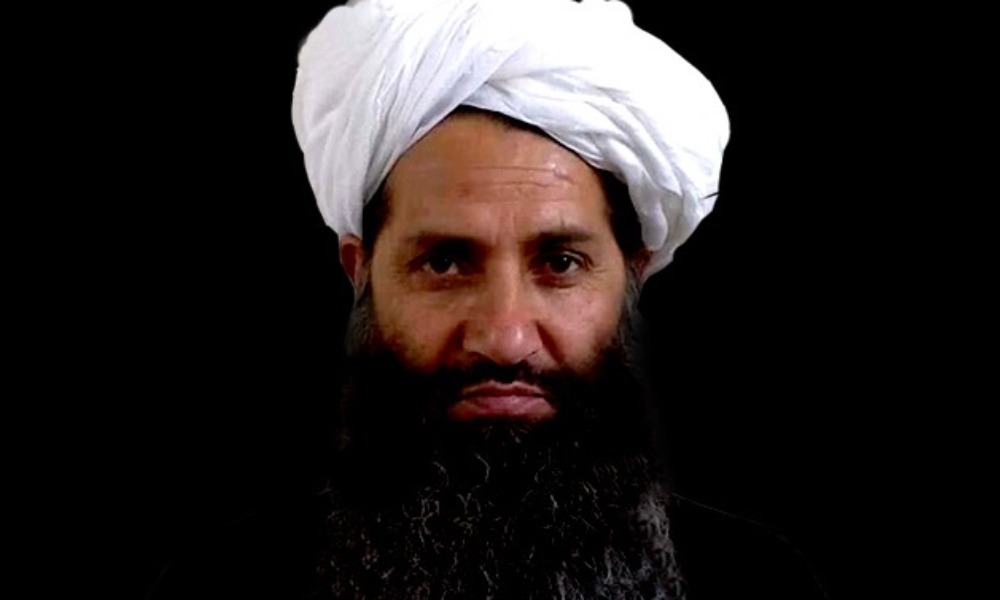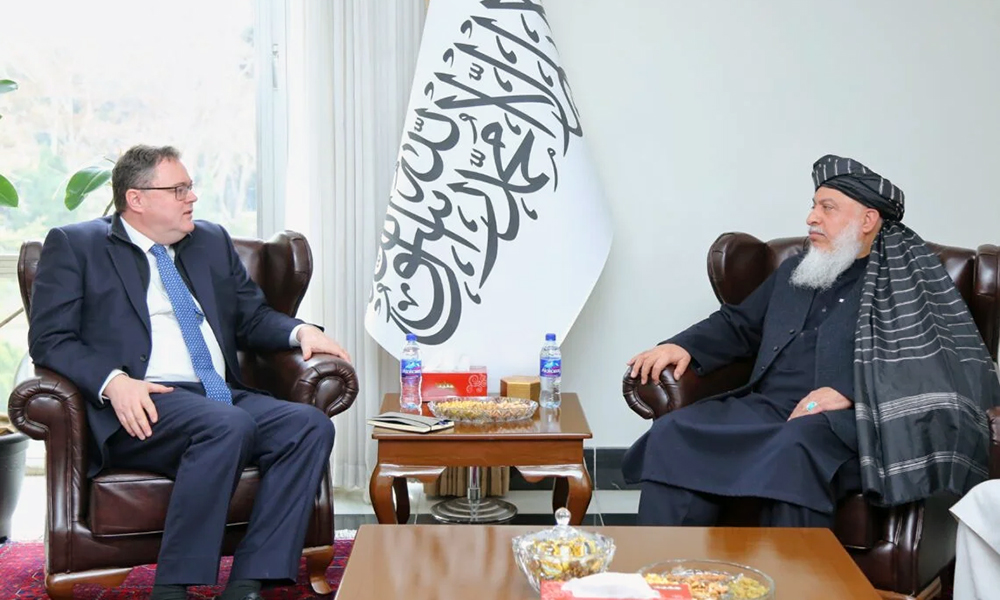Latest News
Pakistan’s COAS says Afghans’ hand in terror incidents harmful to regional peace

Chief of Army Staff (COAS) General Asim Munir on Monday said the “involvement of Afghan nationals” in terrorism incidents in Pakistan was “detrimental to regional peace [and] stability”, Dawn news reported.
The army chief’s remarks came days after the Foreign Office confirmed the involvement of Afghan terrorists in last month’s Zhob cantonment attack.
A statement issued by the Inter-Services Public Relations (ISPR) on Monday said that Munir addressed the incident during a visit to the Martyrs’ Memorial at Bala Hisar Fort in Peshawar, where he met tribal elders among others.
“The involvement of Afghan nationals in terrorist incidents in Pakistan is detrimental to regional peace, stability and deviation from the Doha Peace Agreement by the interim Afghan government,” he is quoted as saying.
The agreement was signed in Qatar between the US and Islamic Emirate of Afghanistan (IEA) in February 2020 to bring an end to the 2001–2021 war in Afghanistan.
Expressing concerns over the “sanctuaries available to banned outfits and [the] liberty of action they enjoy on Afghan soil”, Munir said: “Pakistan will spare no effort to dismantle terrorist networks and protect its citizens at all costs.”
The ISPR statement further quoted the COAS as saying: “With the unflinching resolve of the nation, Pakistan is successfully countering terrorism to enable a stable and peaceful environment for socioeconomic development in the area”.
It added that tribal elders assured the armed forces that the Tehreek-e-Taliban Pakistan (TTP) and its ideology will “never be acceptable to any tribe and they will continue to stand with the state during the thick and thin.”
Pakistan has repeatedly raised concerns over the use of Afghan soil by militants for cross-border terrorism.
However, the Islamic Emirate has repeatedly rejected these claims. Last week,the IEA’s spokesman Zabiullah Mujahid said that Pakistani officials are making baseless accusations against Afghanistan regarding the country’s security situation.
He said: “The Islamic Emirate does not allow anyone to use the territory of Afghanistan against any other country.”
“If there is any concern related to this, it should be shared with the Islamic Emirate face to face, instead of making useless claims in the media and confusing the public mind,” Mujahid said adding: “Because making such claims is not in the interest of both countries and nations.”
The country has seen an uptick in terror activities, especially in Khyber Pakhtunkhwa and Balochistan, after the TTP called off its ceasefire with the government in November last year.
Latest News
Human traffickers should be sentenced to 1 to 3 years in prison: IEA leader

The Leader of the Islamic Emirate has issued a decree instructing the Ministry of Interior Affairs to prevent human trafficking and to arrest and refer culprits to military courts.
The decree containing six articles says that that military courts should sentence human traffickers to one year in prison for the first time, two years if repeated for the second time and three years if repeated for the third time.
The ministries of Hajj, information, telecommunications, borders, propagation of virtue, as well as religious scholars are asked to inform the public about the dangers and adverse consequences of travelling through smuggling routes.
The decree comes as the rate of migration has increased following the political change in Afghanistan in 2021.
Latest News
Eight Afghan migrants die as boat capsizes off Greek island

Eight Afghan migrants died after a speedboat carrying migrants capsized off Greece's eastern island of Rhodes on Friday, the Associated Press reported.
Greek authorities said that the capsizing was the result of the boat’s maneuvering to evade a patrol vessel.
A total of 18 migrants — 12 men, three women and three minors — all Afghan nationals, were rescued, Greece's coast guard said Saturday. The dead were also from Afghanistan, it said.
Some migrants remained hospitalized, with one in critical condition, authorities said.
Two Turkish citizens, ages 23 and 19, were arrested as the suspected traffickers. The boat sank after capsizing, the coast guard said.
The sinking off Rhodes was the second deadly incident involving migrants in the past week.
Seven migrants were killed and dozens were believed missing after a boat partially sank south of the island of Crete over the weekend — one of four rescue operations during which more than 200 migrants were rescued.
Latest News
Norwegian Chargé d’Affaires meets with IEA deputy foreign minister
Welcoming the diplomat’s visit to Kabul, Stanikzai underscored the importance of political relations between Afghanistan and Norway, the foreign ministry said in a statement.

The Norwegian Chargé d’Affaires for Afghanistan, Per Albert Ilsaas, on Saturday met with IEA’s Deputy Foreign Minister for Political Affairs, Sher Muhammad Abbas Stanikzai, in Kabul.
Welcoming the diplomat’s visit to Kabul, Stanikzai underscored the importance of political relations between Afghanistan and Norway, the foreign ministry said in a statement.
In addition to focusing on bilateral political, humanitarian, and other pertinent issues, the two sides expressed hope that continued engagement would lead to constructive solutions to related issues.
This comes two weeks after the Foreign Ministry Spokesman Abdul Qahar Balkhi expressed disappointment regarding the decision by the Norwegian government to downgrade diplomatic relations with Afghanistan.
Balkhi said in a post on X that such decisions should not be linked with internal affairs of other countries.
“Diplomatic engagement is most effective when it fosters mutual understanding and respect, even amidst differing viewpoints,” he stated.
“Access to consular services is a fundamental right of all nationals. We strongly urge all parties to prioritize this principle in the spirit of international cooperation,” he added.
-

 Sport5 days ago
Sport5 days agoZimbabwe’s opening ODI against Afghanistan abandoned
-

 World4 days ago
World4 days agoNorth Korean troops suffer 100 deaths, struggling in drone warfare, South Korea says
-

 Latest News2 days ago
Latest News2 days agoAfghan men must stand with women to support viable future of country: US envoy
-

 Latest News4 days ago
Latest News4 days agoTwo horror accidents on Kabul-Kandahar highway leave 52 dead
-

 Sport3 days ago
Sport3 days agoAfghanistan crush Zimbabwe by 232 runs in second ODI
-

 Regional5 days ago
Regional5 days agoIran’s president to make rare visit to Egypt for D-8 summit
-

 International Sports4 days ago
International Sports4 days agoLanka T10: Kandy Bolts in at 4th spot in playoffs after thrilling day
-

 World5 days ago
World5 days agoNATO takes over coordination of military aid to Kyiv from US, source says
























